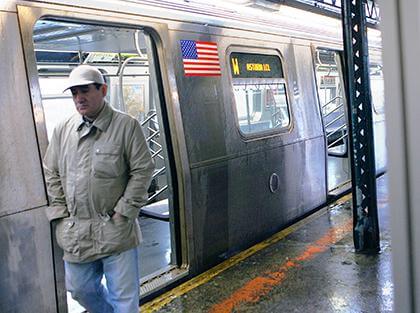By Philip Newman
With less than two weeks before a massive cutback in New York City’s mass transportation system becomes reality, the MTA is preparing for public hearings prior to layoffs of hundreds of subway station agents.
“We plan to release a schedule of four public hearings sometime in the next two weeks,” said Kevin Ortiz, a spokesman for the Metropolitan Transportation Authority. “All hearings are to be held in July.”
Justice Alice Schlesinger of New York State Supreme Court in Manhattan issued a restraining order to halt the MTA from dismissing the station agents.
The justice said the MTA had acted improperly in its failure to hold hearings prior to the layoffs.
Transport Workers Union Local 100, which had sued to halt the layoffs, has long maintained that the public’s security would be heavily compromised without the agents in subway stations and that turnstile-jumping by fare evaders would become rampant.
Paul Fleuranges, chief spokesman for the New York City Transit Authority, which operates buses and subways, said, “We will proceed with the planned layoffs once this legal matter has been resolved.”
June 27 has been designated for perhaps the most severe retrenchment in the city transit system’s history, imperative because of the MTA’s dire financial condition caused in great part by plunging tax revenue in an economic recession and near cutoff of state and city money for transit.
The MTA said it will save $93 million with the cuts and 1,000 layoffs.
More than a dozen Queens bus lines are to be eliminated, shortened, rerouted or otherwise changed. The W subway line will be shut down and the G line is to end at Court Square.
The changes would also include paratransit service, like Access-A-Ride for the elderly and disabled who cannot use subways or buses.
Still unresolved is whether to take free MetroCards away from 600,000 schoolchildren — perhaps the most emotional of issues in the cutbacks. It costs the MTA $214 million annually.
For its part, the MTA reports it plans to eliminate 3,000 jobs from its payroll of 70,000 in what MTA Chairman Jay Walder said will be a “whole new way of doing business.”
The MTA plans a 7.5 percent raise in transit fares next year.
Reach contributing writer Philip Newman by e-mail at timesledgernews@cnglocal.com or phone at 718-260-4536.



































